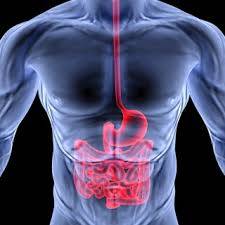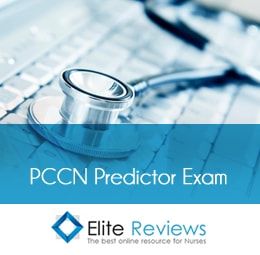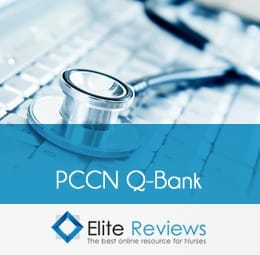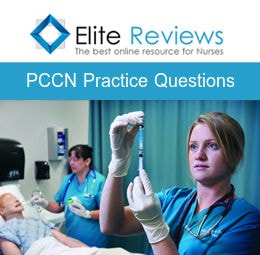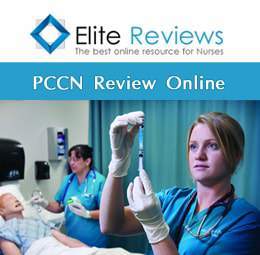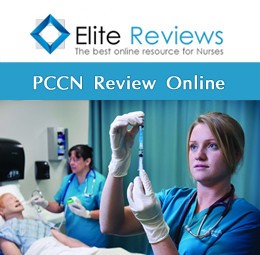PCCN Gastrointestinal Exam Overview
PCCN Gastrointestinal Exam Overview
Gastrointestinal Pathophysiology
The Gastrointestinal section of the PCCN Certification will encompass a very small portion of the PCCN exam. This particular section will have approximately 5 to 8 questions on the exam. Although that is a very small portion in comparison to everything else on the exam, it is imperative that you get all of these questions correct. If you are able to answer all of the GI questions correct, you will have some latitude when answering other parts of the exam. In this article we will cover the Gastrointestinal outline of the PCCN exam, a broad overview of GI anatomy and physiology, and cover some GI practice questions.
Gastrointestinal Outline
- Acute Abdominal Trauma
- Acute GI Hemorrhage
- Acute Abdomen
- GI Surgeries
- Hepatic Failure/Coma
- Pancreatitis
- Gastro-esophageal Reflux
GI Anatomy & Physiology
The human GI tract is an organ system responsible for transporting and digesting food, absorbing nutrients, and expelling waste. The GI tract consists of the stomach, and is divided into the upper and lower GI tracts and the small and large intestines. The GI tract includes all structures between the mouth and the anus, forming a continuous passageway that includes the main organs of digestion, namely the stomach, small intestine, and large intestine. The whole human GI tract is about 30 feet long at autopsy. It is considerably shorter in the living body because the intestines, which are tubes of smooth muscle tissue, maintaining a constant muscle tone.
Pancreatitis
The pancreas is a large gland behind the stomach and next to the small intestine. The pancreas does two things: it releases powerful digestive enzymes into the small intestine to aid the digestion of food, and it releases the hormones insulin and glucagon into the bloodstream. These hormones help the body control how it uses food for energy.
Pancreatitis is a disease in which the pancreas becomes inflamed. Pancreatic damage happens when the digestive enzymes are activated before they are released into the small intestine and begin attacking the pancreas. There are two forms of pancreatitis; acute and chronic.
- Acute pancreatitis is a sudden inflammation that lasts for a short time. It may range from mild discomfort to a severe life threatening illness. Most people with acute pancreatitis recover completely after getting the right treatment. In severe cases, acute pancreatitis can result in bleeding into the gland, serious tissue damage, infection, and cyst formation.
- Chronic pancreatitis is long lasting inflammation of the pancreas. it most often happens after an episode of acute pancreatitis. Heavy alcohol consumption is another big cause.
Signs and Symptoms
- Upper abdominal pain that radiates to the back; aggravated by eating, especially foods high in fat
- Swollen and tender abdomen
- Nausea and vomiting
- Fever
- Increased heart rate
Pancreatitis Etiology
- Gallstones or heavy alcohol use
- Medications, infections, trauma
- Metabolic disorders and surgery
Treatment of Pancreatitis
- Treat the s/s
- IV fluids and pain meds
PCCN GI Sample Questions
1) Vasopressin may be used in the patients with GI bleeding. What is the mechanism of action of Vasopressin?
A) Increases mesenteric blood flow to reduce ischemia
B) Decreases portal venous blood flow to decrease bleeding
C) Causes sodium and water retention to replace volume
D) Blocks H2 receptors to inhibit hydrochloric acid secretion
2) A 39 y/o male is admitted with a history of chronic liver failure and ETOH abuse. He has ascites and severe peripheral edema. He is anorexic, vomiting, hypokalemic, and now has developed metabolic alkalosis. Which of the following would not be included in this patient’s management?
A) Diuretics
B) Potassium supplements
C) Antiemetics
D) Diet high in protein
3) A 52 y/o male patient with acute pancreatitis develops agitation, fine tremors, and tachycardia about 48 hours after admission. Which of the following is the most likely cause of these signs and symptoms?
A) Pancreatic pseudocyst
B) Hypoglycemia
C) Alcohol withdrawal
D) Pancreatic abscess
PCCN GI Practice Questions Answer with Rationale
1) Correct Answer – B) Decreases portal venous blood flow to decrease bleeding
- Rationale – Vasopressin slows blood loss by constricting the splanchnic arteriolar bed and decreasing portal venous pressure.
2) Correct Answer – A) Diuretics
- Rationale – Diuretics would contribute to metabolic alkalosis and hypokalemia and would deplete the vascular bed rather than the third spaces.
3) Correct Answer – C) Alcohol withdrawal
- Rationale – Alcoholism is a common cause of acute pancreatitis, and alcohol withdrawal is a complication that must be closely observed for within the first 24 – 72 hours after onset of abstinence.
PCCN National Exam Courses
Overview
- Elite Reviews Offers A Variety Of Online Courses That Will More Than Adequately Help Prepare The Critical Care Nurse To Pass The National Exam.
- Each Course Includes Continuing Education Credit and Sample Questions.
Continuing Education
- Each Of Our Online Courses Has Been Approved Continuing Education Contact Hours by the California Board of Nursing
- Login To Your Account In Order To Access The Course Completion Certificate Once The Course Is Complete.
PCCN Free Trial
- FREE Sample Lecture & Practice Questions
- Available For 24 Hrs After Registration
- Click The Free Trial Link To Get Started – PCCN Free Trial
How It Works
How The Course Works
- First – Purchase The Course By Clicking On The Blue Add To Cart Button – You Will Then Be Prompted To Create A User Account.
- Second – After Creating An Account, All 3 Options (90, 120 or 150 Days) Will Be Listed. Select The Option You Desire And Delete The Other Two.
- Third – You Will Be Prompted To Pay For The Review Using PayPal – After Payment You Will Be Redirected Back To Your Account.
- Last – Click The Start Button Located Within Your Account To Begin The Program
- 125 Prep Questions
- Q & A With Rationales
- Approved For 5 CEU’s
- 90 Days Availability
- Cost $75.00
- 1250+ Prep Questions
- Q & A With Rationales
- Approved For 25 CEU’s
- 90 Days Availability
- Cost $200.00
PCCN Practice Questions Bundle
- 1350+ Prep Questions
- Q & A With Rationales
- Approved For 30 CEU’s
- 90 Days Availability
- Cost $225.00
PCCN Review Course
- Option 1
- Lectures & 1250+ Questions
- Q & A With Rationales
- Approved For 35 CEU’s
- 90 Days Availability
- Cost $275.00
- Option 2
- Lectures & 2000+ Questions
- Q & A With Rationales
- Approved For 40 CEU’s
- 90 Days Availability
- Cost $325.00
PCCN Review Course Bundle
- Option 3
- Lectures & 3000+ Questions
- Q & A With Rationales
- Approved For 70 CEU’s
- 90 Days Availability
- Cost $375.00

